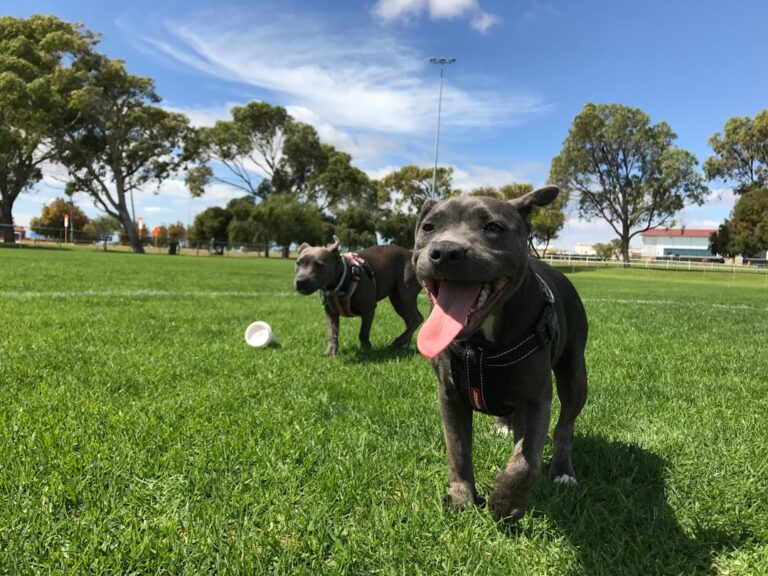Preventative care is the cornerstone of responsible pet ownership, encompassing a range of practices designed to maintain the health and well-being of pets before issues arise. This proactive approach not only enhances the quality of life for pets but also reduces the likelihood of costly medical interventions later on. Regular veterinary check-ups, for instance, are essential components of preventative care.
These visits allow veterinarians to assess a pet’s overall health, monitor for any changes, and provide necessary vaccinations. During these appointments, veterinarians can also offer guidance on nutrition, exercise, and behavioral concerns, ensuring that pet owners are well-informed about their furry companions’ needs. In addition to routine veterinary visits, preventative care includes at-home practices that pet owners can implement.
Regular grooming, for example, is vital for maintaining a pet’s coat and skin health. Brushing not only removes dirt and loose fur but also helps to identify any unusual lumps or skin irritations that may require veterinary attention. Furthermore, regular exercise is crucial for both physical and mental health.
Engaging pets in daily activities not only helps to prevent obesity but also strengthens the bond between pets and their owners. By prioritizing preventative care, pet owners can create a solid foundation for their pets’ long-term health and happiness.
Key Takeaways
- Regular check-ups and vaccinations are essential for preventative care in pets
- Early detection of health issues can lead to better outcomes for pets
- Vaccinations and preventative medications can protect pets from serious illnesses
- Dental health is important for pets and regular dental care is necessary
- Proper nutrition and weight management are crucial for maintaining a pet’s overall health and well-being
- Behavior and training play a key role in a pet’s overall health and happiness
- Senior pets require special care and attention to maintain their health and comfort
- Building a strong relationship with your veterinarian is important for ensuring the best care for your pet
Early Detection of Health Issues
Early detection of health issues is critical in ensuring that pets receive timely treatment, which can significantly improve outcomes and quality of life. Many health problems in pets can develop silently, making it essential for owners to be vigilant and observant of any changes in behavior or physical condition. For instance, a sudden change in appetite or energy levels can be indicative of underlying health issues such as dental disease, gastrointestinal problems, or even more serious conditions like diabetes or cancer.
By recognizing these signs early on, pet owners can seek veterinary care promptly, potentially preventing more severe complications down the line. Veterinarians often emphasize the importance of regular wellness exams as a means of early detection. During these visits, veterinarians perform comprehensive physical examinations and may recommend diagnostic tests such as blood work or imaging studies.
These tests can reveal hidden health issues that may not yet be apparent through physical examination alone. For example, routine blood tests can identify kidney or liver dysfunction before clinical signs become evident. By investing in early detection strategies, pet owners not only enhance their pets’ chances of successful treatment but also foster a deeper understanding of their pets’ health needs.
Vaccinations and Preventative Medications

Vaccinations play a pivotal role in safeguarding pets against a variety of infectious diseases that can have serious consequences. Core vaccinations, such as those for rabies, distemper, parvovirus, and adenovirus, are essential for all pets and are typically administered during the first year of life with booster shots given at regular intervals thereafter. These vaccines stimulate the immune system to recognize and combat specific pathogens, providing a protective barrier against diseases that can be fatal or lead to long-term health issues.
For instance, parvovirus is highly contagious and can cause severe gastrointestinal distress in dogs; vaccination is crucial in preventing outbreaks. In addition to core vaccinations, many veterinarians recommend non-core vaccines based on a pet’s lifestyle and risk factors. For example, pets that frequently interact with other animals or spend time outdoors may benefit from vaccines against Bordetella (kennel cough) or Lyme disease.
Alongside vaccinations, preventative medications are equally important in protecting pets from parasites such as fleas, ticks, and heartworms. These medications can vary in form—from topical treatments to oral tablets—and should be administered according to a veterinarian’s recommendations to ensure maximum efficacy. By staying up-to-date with vaccinations and preventative medications, pet owners can significantly reduce the risk of disease transmission and enhance their pets’ overall health.
Dental Health
| Country | Dentists per 1000 people | Adults with untreated dental caries | Children with untreated dental caries |
|---|---|---|---|
| United States | 0.6 | 26% | 20% |
| United Kingdom | 0.8 | 19% | 25% |
| Canada | 0.7 | 22% | 18% |
Dental health is often an overlooked aspect of pet care, yet it is crucial for maintaining overall well-being. Just like humans, pets can suffer from dental diseases such as periodontal disease, which can lead to pain, tooth loss, and systemic health issues if left untreated. Regular dental check-ups are essential for identifying early signs of dental problems.
During these visits, veterinarians can perform professional cleanings and provide recommendations for at-home dental care routines. This may include brushing a pet’s teeth with specially formulated toothpaste or providing dental chews designed to reduce plaque buildup. Incorporating dental care into a pet’s routine not only prevents oral diseases but also contributes to better overall health.
Research has shown that bacteria from periodontal disease can enter the bloodstream and affect vital organs such as the heart and kidneys. Therefore, maintaining good dental hygiene is not just about fresh breath; it is an integral part of a pet’s health management plan. Pet owners should also be aware of the signs of dental issues, such as bad breath, difficulty eating, or swollen gums.
By prioritizing dental health through regular veterinary visits and at-home care, pet owners can help ensure their pets lead healthier lives.
Nutrition and Weight Management
Nutrition plays a fundamental role in a pet’s overall health and longevity. Providing a balanced diet tailored to a pet’s specific needs—considering factors such as age, breed, activity level, and any existing health conditions—is essential for optimal well-being. High-quality commercial pet foods are formulated to meet the nutritional requirements of pets; however, some owners may choose to prepare homemade diets or incorporate supplements.
In such cases, it is crucial to consult with a veterinarian or a veterinary nutritionist to ensure that the diet is complete and balanced. Weight management is another critical aspect of nutrition that directly impacts a pet’s health. Obesity in pets has reached epidemic proportions in recent years and is associated with numerous health problems including diabetes, joint issues, and cardiovascular disease.
Regular monitoring of a pet’s weight and body condition score can help owners identify when their pets may be at risk for obesity. Implementing portion control and encouraging regular exercise are effective strategies for maintaining a healthy weight. Additionally, understanding the caloric content of treats and incorporating them into a pet’s daily caloric intake is vital for preventing weight gain.
By prioritizing nutrition and weight management, pet owners can significantly enhance their pets’ quality of life.
Behavior and Training

Behavioral issues are common among pets and can lead to significant challenges in the owner-pet relationship if not addressed properly. Understanding animal behavior is essential for fostering a harmonious environment at home. Many behavioral problems stem from anxiety or lack of socialization; therefore, early training and socialization are crucial during a pet’s formative months.
Positive reinforcement training methods have gained popularity due to their effectiveness in promoting desired behaviors while strengthening the bond between pets and their owners. Training should not be limited to basic commands; it should also encompass addressing specific behavioral concerns such as excessive barking, chewing, or aggression. Engaging professional trainers or behaviorists can provide valuable insights into modifying undesirable behaviors through structured programs tailored to individual pets’ needs.
Additionally, providing mental stimulation through interactive toys or puzzle feeders can help alleviate boredom-related behaviors. By investing time in training and understanding their pets’ behavioral needs, owners can create a more enriching environment that promotes positive interactions.
Senior Pet Care
As pets age, their healthcare needs evolve significantly; thus, senior pet care requires special attention and consideration. Older pets are more susceptible to various health issues such as arthritis, kidney disease, and cognitive dysfunction syndrome (CDS). Regular veterinary check-ups become increasingly important during this stage of life to monitor for age-related conditions and adjust care plans accordingly.
Many veterinarians recommend semi-annual wellness exams for senior pets to catch potential problems early. In addition to regular veterinary visits, modifications at home can greatly enhance the quality of life for senior pets. Providing orthopedic beds can alleviate joint pain while ramps or steps can assist older pets in accessing favorite spots without straining themselves.
Nutrition also plays a vital role; senior diets often contain lower calories but higher fiber content to support digestive health while addressing specific needs such as joint support through added glucosamine or omega fatty acids. By being proactive in senior pet care, owners can ensure their aging companions remain comfortable and happy during their golden years.
Building a Relationship with Your Veterinarian
Establishing a strong relationship with a veterinarian is fundamental to ensuring optimal care for pets throughout their lives. A good veterinarian acts not only as a healthcare provider but also as an educator who empowers pet owners with knowledge about their pets’ health needs. Open communication is key; pet owners should feel comfortable discussing any concerns or questions they may have regarding their pets’ behavior, diet, or medical conditions.
This collaborative approach fosters trust and allows veterinarians to tailor care plans that best suit each individual pet. Moreover, regular visits to the same veterinarian help build familiarity between the pet and the healthcare provider. This relationship can ease anxiety during examinations and procedures since pets often respond better when they recognize their caregivers.
Additionally, veterinarians who know a pet’s history are better equipped to identify changes in behavior or health status over time. Engaging in discussions about preventative care strategies or lifestyle modifications further strengthens this partnership between pet owners and veterinarians. By prioritizing this relationship, pet owners can ensure that they are providing their beloved companions with the best possible care throughout their lives.












